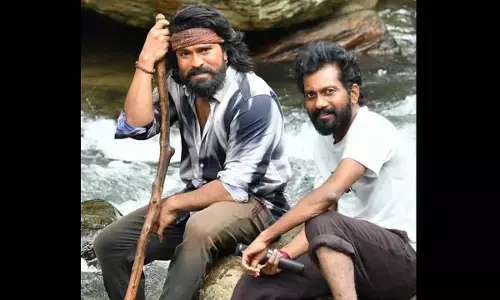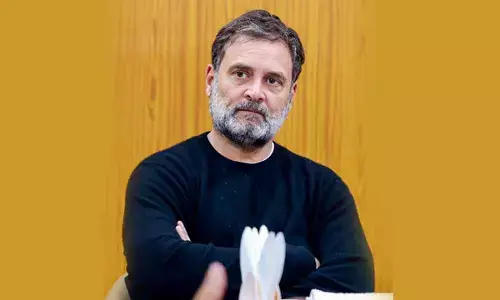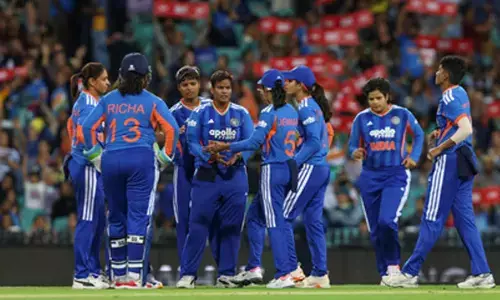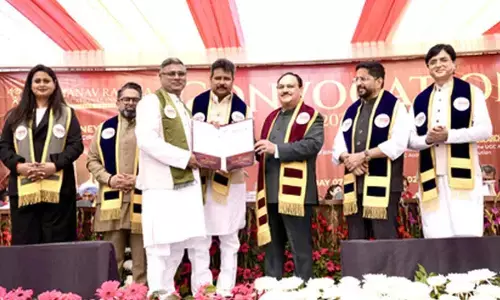Of good governance & Modi's role
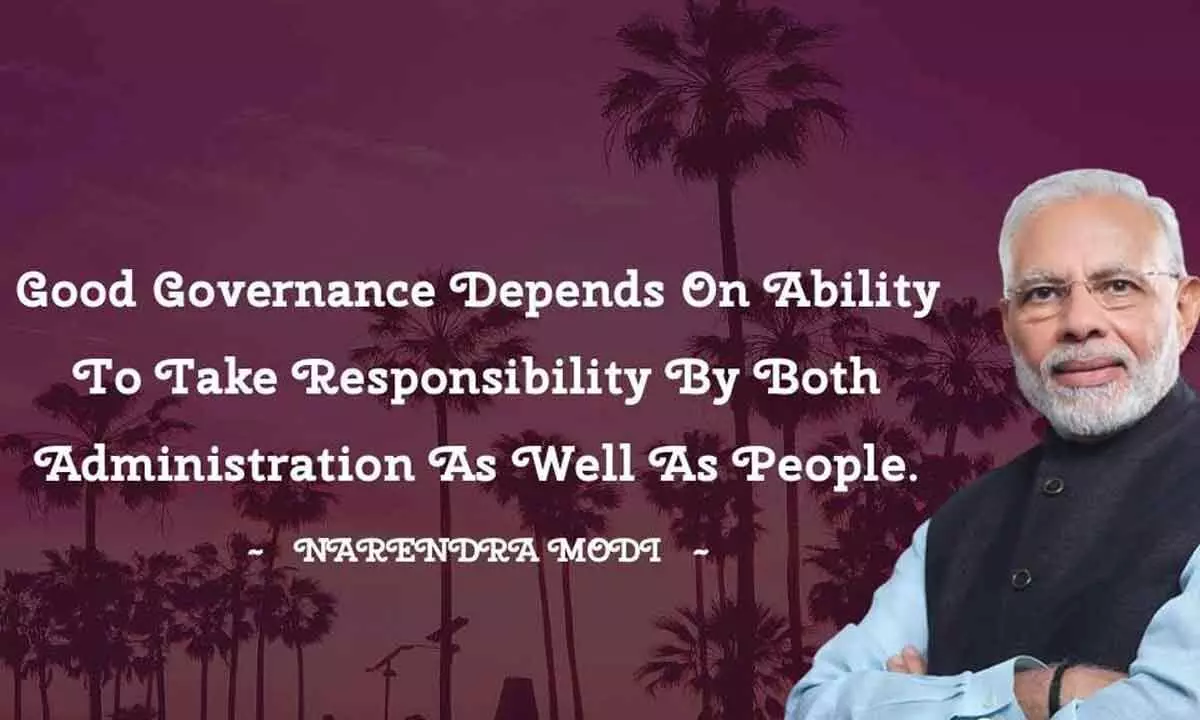
The objectives of governance in India were to establish a more robust internal security system fully utilising the state police – which is primarily responsible for law & order management – towards this objective, to take the central and state administration in the direction of 'digitisation' to minimise corruption and optimise the efficiency of delivery and to maximise the state's outreach to the people at the lowest rungs of the socio-economic pyramid. That things are moving the right way in the perception of the people at large is something that directly goes to the credit of Prime Minister Modi who set the paradigms of progress for his team and effectively monitored it – a lesser political leader ruling a large aspirational country like India would not have been able to handle this
A democratic state run by an elected political executive provides a government that is 'for the people' in the sense that it establishes the right to equality not only of opportunity but of the protection of the law as well and gives a public service orientation to its machinery of administration. Judged on these parameters the governance strives for improvement and this is precisely the hallmark of the Narendra Modi government.
In the regime of Prime Minister Modi, there has been a refreshing emphasis on the elimination of 'VIP culture' which is something that only bred corruption, an explicit direction from the top to the bureaucracy to be sensitive to the public good and be prompt in grievance redressal and a drastic 'correction' of the notorious delays that held up the formulation of policies and national projects for lack of inter-ministerial coordination.
In academic terms good governance operates at three levels – the decision-making process at the top, the functioning of the administrative machinery of the state particularly its coercive arms such as the body of tax collectors, regulators and the police force, and the state of development of infrastructure and public services such as medical, transport and public distribution. In a country inflicted by disparities, these services acquired special importance and urgency.
Prime Minister Modi's arrival on the national scene reflected the popular will endorsing a new leader of the ruling party who had the image of personal integrity and a reputation for handling the administration on a tough note- in contrast with the preceding indecisive and not-so-clean UPA government.
The new Prime Minister's decisiveness and a new level of political will have given a notable upgrade to governance in the areas of economic development, foreign policy and national security. It has eliminated delays caused by sloppy coordination among various wings of the government, brought clarity and firmness in the handling of international relations and put a new focus on economic growth.
Prime Minister Modi himself reviewed the working of the ministries with their top bureaucrats which sent down the message of expectation of efficiency and quick delivery to all concerned in his administration. This had never happened before and the results were unmissable.
Economic development and people-related projects received special attention and specific guidance from the Prime Minister and this all made for a demonstrative assumption of responsibility for good governance at the highest national levels.
The new annual budget presented by Finance Minister Nirmala Sitharaman has to be appreciated for the collectivity of minds that went into a comprehensive examination of various facets of India's socio-economic situation, industrial growth and human development. It emphasised the steady advancement of the country towards its long-term goals and showed the Modi government's sincerity of purpose and commitment to the nation in this regard.
The people of India attach great value to the initiatives of the government of the day for building our defence capabilities and beefing up our national security set-up. Prime Minister Modi's National Security Advisor has been a source of strength for the Prime Minister on one hand and a visible pivot of security and defence upgradation in the eyes of the people, on the other.
Modi regime no doubt has earned the complete trust of citizens as far as the safeguarding of national security was concerned. They admired the surgical strike against Pakistan carried out by India in retaliation for the terror attack on a CRPF convoy at Pulwama in February 2019 and apparently supported the 'no talks' policy towards this hostile neighbour.
As regards China, Prime Minister Modi's decision to order adequate military build-up on LAC in Ladakh and elsewhere to deal with any Chinese aggressiveness on the border, activate India's role in the Quad and step up diplomatic offensive in the UN and other international forums against the anti-India Sino-Pak axis, has proved to be a comprehensive security strategy to deal with the hostile adversary to our North.
The security set-up needs to further extend its outreach and develop new tradecraft techniques for collecting information of intelligence value because the enemy had taken to newer instruments of 'proxy war' such as the use of online channels for funding the low-cost offensive of terrorists and managing the 'perception battle'.
The Modi government is fully aware of the added challenges – beyond the use of terrorism by Pakistan as a weapon of asymmetric warfare against India. While India is now well prepared to repel an external attack, the capacity to keep the nation secure would be tested by the new reality where external threats to internal security had multiplied because of the strategic alliance between Pakistan and China - mainly in operation against India. The two hostile neighbours had a certain capacity to fish in India's troubled waters. Their collusion on cross-border terrorism against India, opposition to the abrogation of Art 370 relating to J&K by the Indian Parliament and the meeting of minds on Afghanistan, indicate that India is in for a long-term security situation.
The objectives of governance in India were to establish a more robust internal security system fully utilising the state police – which is primarily responsible for law & order management – towards this objective, to take the central and state administration in the direction of 'digitisation' to minimise corruption and optimise the efficiency of delivery and to maximise the state's outreach to the people at the lowest rungs of the socio-economic pyramid. That things are moving the right way in the perception of the people at large is something that directly goes to the credit of Prime Minister Modi who set the paradigms of progress for his team and effectively monitored it – a lesser political leader ruling a large aspirational country like India would not have been able to handle this.
Governance, however, is a work in progress and whereas the policy framework in the broad spheres of national security and economic development of the country had been put in place the ultimate test of success was the implementation down to the ground level where the people lived.
The Centre-state division of powers and responsibilities has to rise above the political vested interests attributable to party politics so that progress towards the much desired 'Cooperative Federalism', was not impeded.
There is no doubt that the governance model of Prime Minister Modi, helped the rapid rise of India in the international community as a sane voice in these crucial times when there was a military conflict between Russia and West-supported Ukraine and a growing polarisation between the US and China suggestive of a new Cold War.
India's declared preference for a multipolar order in which major powers including India would have a role in building a world consensus in favour of global peace and economic advancement for all is creating an impact.
All of this represents the quintessential foreign policy of India that will be pushed forth during its Presidency of G20 - the motto 'Vasudhaiva Kutumbakam' appropriately presenting this ethos.
The wide range of national initiatives from 'Swachh Bharat' and 'ease of doing business' to encouraging re-skilling and 'Start Ups', add to good governance and show how the democratic state felt sufficiently concerned with youth, women and the 'have-nots'.
Without being an economist Prime Minister Modi has a firm grip on the problems of economic growth and though in politics he knows the importance of pursuing a moral streak in public life. He also realises that preserving internal peace and cohesion was as important as protecting India from an external attack. India needs continuity of these policies on various fronts as they gelled into a comprehensive framework for achieving national resilience and strategic autonomy.
(The writer is a former Director of Intelligence Bureau)




